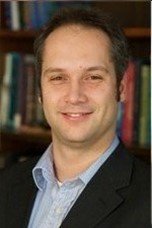
Philippe M. Bardet
Dr. Bardet’s current research is focused on developing instrumentation and acquiring data for bettering understanding of physical processes and for validating high-fidelity CFD. His research group is currently developing non-intrusive laser diagnostics for measuring water vapor temperature, dissolved gas concentration in liquids, as well as velocimetry techniques, both seedless and particle based. Notably, Dr. Bardet’s group has advanced Molecular Tagging Velocimetry to measure wall shear stress directly in high-Reynolds number flows. Dr. Bardet and his group are focused on fluid-structure interactions, mass transfer and dynamics at liquid gas interfaces, and 3D turbulent boundary layers. He has led several on-situ experimental campaigns where his team instrumented large experimental facilities with custom diagnostics developed in his laboratory. Dr. Bardet teaches courses in Fluid Mechanics, Thermodynamics, Experimental Methods, and Optics.
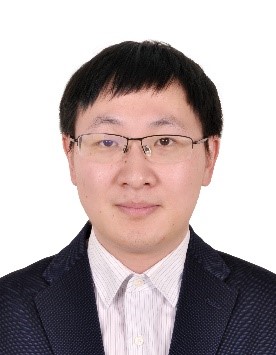
Prof. Dr. Lin Chen
Dr. Lin Chen is now a full professor and deputy director of Heat and Mass Transfer Research Center in the Institute of Engineering Thermophysics, Chinese Academy of Sciences and jointly at the University of Chinese Academy of Sciences, China. He is currently one Board member of Experts Commission of China Energy Society. He obtained his B.E and PhD from Peking University. He was previously a JST-CREST and JSPS Research Fellow and an Assistant Professor in Tohoku University, Japan.
His research topics include supercritical CO2 power cycle, energy resources (hydrate and hydrogen) equipment, and advanced measurement techniques. He has authored over 300 journal papers and/or conference presentations, 20 patents, 4 professional books including the most famous one on energy conversion (Handbook of Research on Advancements in Supercritical Fluids Applications for Sustainable Energy Systems, IGI Global, 2021, 821 pages). He served and 8 times as Chair/major organizer and 36 times as plenary/invited speaker in international conferences/symposiums. He was the winner of Young Scholar Award of the Asian Union of Thermal Science and Engineering in 2018, and Research Paper Award of the Visualization Society of Japan in 2022, and ranked within the World TOP 2% scientist 2023 (Elsevier) due to his outstanding research in supercritical fluid engineering. He is also the Elsevier Journal TOP5 most-cited award and Springer Thesis Award, etc., He is also an Associate Editor of J. NERS (ASME) and Board member of the J. Supercritical Fluids (Elsevier).
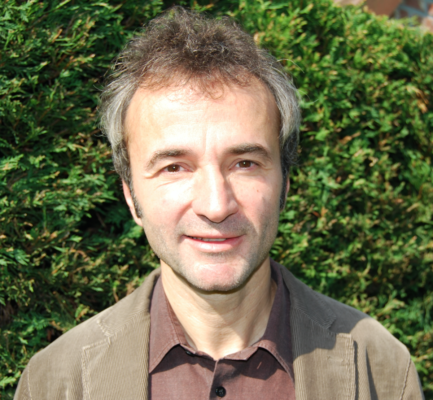
Prof. Pierre Colinet
Pierre Colinet is a Research Director of the Fonds de la Recherche Scientifique (FNRS) and Professor at the Ecole Polytechnique of the Université Libre de Bruxelles, where he heads the Fluid Physics Research Unit within the TIPs (Transfers, Interfaces and Processes) laboratory. He currently teaches Physical Chemistry and Modeling of Multiphase Systems, and his main research interests are in capillarity, wetting, surface-tension-driven flows, phase change (e.g. evaporation and boiling), heat/mass transfer, thin films and droplets, pattern formation, hydrodynamic instabilities, nonlinear dynamics, micro- and nano-fluidics, … Although he started his career as a theoretician, his group is now conducting experiments involving measurement techniques such as interferometry, applying to investigation on evaporating droplets of pure liquids and mixtures.He is the author of 2 monographs, several editorships, about 120 articles in peer-reviewed journals, and about 50 conference proceedings.
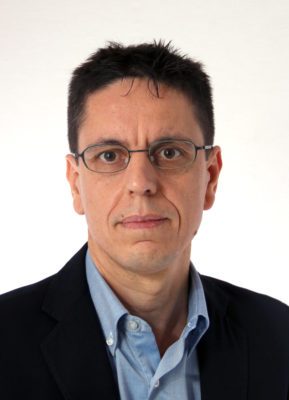
Prof. Davide Del Col
Davide Del Col is full professor at University of Padova (Italy), where he teaches “Refrigeration and heat pump technology” and “Renewable energy technologies”. He is Coordinator of the Master degree in Energy engineering at University of Padua , Secretary of UIT (Italian Union of Thermofluidodynamics), Member of Scientific Council of ICHMT, Secretary of Commission B1 of IIR (International Institute of Refrigeration), Paris. He is the responsible of the research group “STET – Sustainable Thermal Energy Technologies”, running the Lab of heat transfer with phase change, the Solar energy conversion lab and the Lab of refrigeration and heat pumps. At present he is the coordinator of the ESA Programme: Condensation in microgravity, 2019-2022, with partners from Europe and Canada. Scientific responsible for many international and national projects and projects funded by private companies, he is inventor of three patents (two of them granted to private companies). According to Scopus, he has 155 cited documents, with over 4100 citations and h-index=34.
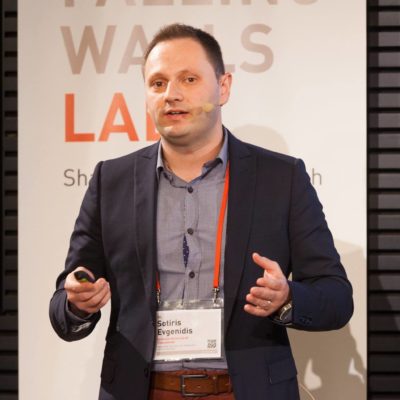
Dr. Sotiris Evgenidis
Dr. Sotiris Evgenidis (Chemist, MSc, PhD) is a research associate of Multiphase Dynamics Group (School of Chemistry, Aristotle University of Thessaloniki, Greece). He has spent the last 15 years conducting research in the area of chemical/biomedical engineering. His research interests include: a) Theoretical and experimental study of multiphase systems, b) Transport phenomena under varying gravity conditions (0-20 g), c) Wetting of solid surfaces, d) Application of electrical impedance measurements for the diagnosis of Decompression Sickness and Coronary Artery Disease. He is holder of 2 European patents, has published 25 publications in peer reviewed international scientific journals and participated at 50 international scientific conferences. Additionally, Dr. S. Evgenidis has participated in 12 European research projects (10 of which funded by European Space Agency-ESA) and also in the organizing committee of 5 international conferences. Finally, he has been awarded by ESA and NASA for his research under non-terrestrial conditions (micro-gravity and hyper-gravity) and successful technology transfer from space to ground applications.

Marcia H. Mantelli
Marcia H. Mantelli received a Ph.D in Mechanical Engineering from the University of Waterloo, Canada, in 1995. She worked at INPE from 1983 to 1998, developing spacecraft thermal control systems. In 1999, she joined the Federal University of Santa Catarina, Brazil, as mechanical engineering faculty Professor, starting a heat pipe laboratory for space applications, which now has provided thermal solutions for a wide range of industries. She received several grants from major industries in Brazil and, under her supervision, a 2000m2 laboratory building, dedicated to heat pipe technologies research, was constructed. As result of her cooperation with the industry, she holds more than ten patents and authored (and co-authored) over 200 publications. In 2021, she published, as the only author, the book: Thermosyphons and Heat Pipes: Theory and Applications, by Springer and Nature. She supervises/supervised over 30 doctoral thesis and 60 master´s dissertations. She received 18 awards, including Claudia Magazine’s best woman scientist in Brazil, in 2012 and “Women in Highlight”, from CREA, in 2015. She is Associate Fellow and Associate Editor of AIAA International Journal of Thermophysics and Heat Transfer and reviewer of fifteen of the major international journals in her research area. She is Associate Editor of the Elsevier International Journal of Thermofluids. She recorded a TEDx Talk video in 2014. She has frequently been invited for round table and talks about the participation and contributions of women in engineering.
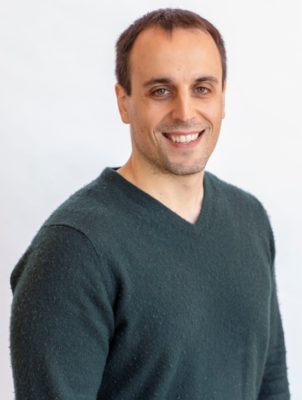
Dr. Nenad Miljkovic
Dr. Nenad Miljkovic is the Founder Professor of Mechanical Science and Engineering at the University of Illinois at Urbana-Champaign (UIUC). He has courtesy appointments in Electrical and Computer Engineering, the Materials Research Laboratory, and the Institute for Sustainability, Energy and Environment (iSEE). He is the Director of the Air Conditioning and Refrigeration Center (ACRC), which is supported by 30 industrial partners. His group’s research intersects the multidisciplinary fields of thermo-fluid science, interfacial phenomena, scalable nanomanufacturing, and renewable energy. He is a recipient of the NSF CAREER Award, the ACS PRF DNI Award, the ONR YIP Award, an R&D 100 Award, a Distinguished Visiting Fellowship from the UK Royal Academy of Engineering, a U.S. NAS Arab-American Frontiers Fellowship, the ASME ICNMM Young Faculty Award, the ASME Pi Tau Sigma Gold Medal, the CERL R&D Technical Achievement Award, the UIUC Dean’s Award for Excellence in Research, the US Army Corps of Engineers ERDC R&D Achievement Award, the SME Young Faculty Award, the Bergles-Rohsenow Young Investigator Award in Heat Transfer, the ASME EPPD Early Career Award, and is an ASME Fellow.
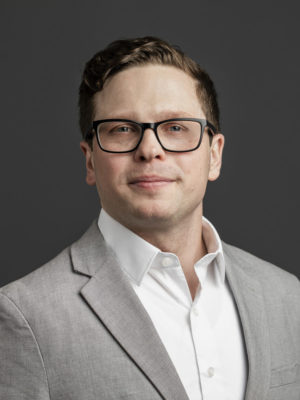
Prof. Dr. Thomas Schutzius
Dr. Thomas Schutzius is an assistant professor in the Department of Mechanical Engineering at UC Berkeley. Previously, he was an Assistant Professor at ETH Zurich where he led the Laboratory for Multiphase Thermofluidics and Surface Nanoengineering. His research intersects the multidisciplinary fields of energy, surface science and engineering, and thermofluidics, and his experimental work captures the fundamental dynamics of a vast array of interfacial and micro-nanoscale transport phenomena. Dr. Schutzius received the prestigious ERC Starting Grant, which supported his research on understanding the fundamentals of limescale formation on surfaces (scaling) and using this knowledge to rationally engineer “scale-phobic” surfaces. In 2020 he received the ETH “Golden Owl” Award for excellent teaching and was a nominee for the KITE Award 2022 recognizing innovation in teaching. During his graduate studies, he was the recipient of the Dean’s Scholar Award and the UIC Outstanding Thesis Award. He also received the ETH Zurich Postdoctoral Fellowship. In 2018 he was part of the ETH Zurich representation to the prestigious Global Young Scientist Summit (GYSS) in Singapore.
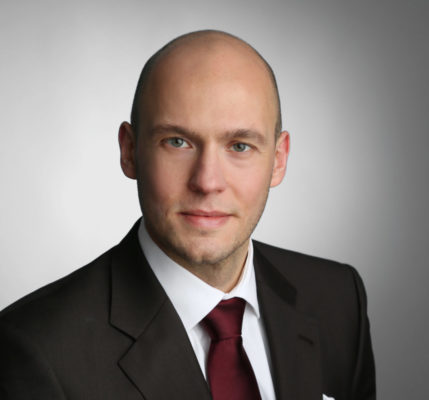
Dr. Axel Sielaff
Axel Sielaff graduated from the University of Hanover in 2008 with a degree in general mechanical engineering, specialized in energy and process engineering. He completed his Ph.D. in 2014 at the Technical University of Darmstadt under the supervision of Prof. Peter Stephan with the topic “Experimental investigation of single bubble and bubble interaction in nucleate boiling.” Subsequently, as a PostDoc at the same institute, he worked significantly as a technical officer in the scientific support of the Multiscale Boiling Project conducted on the International Space Station from 2019 – 2021. He spent an extended period abroad at RMIT (Melbourne – Prof. Rosengarten) and a shorter one at IITM (Madras – Prof. Pattamatta). With a clear experimental focus, he is actually heading the “Boiling and Evaporation” group since 2015 and is responsible for the entire experimental test field of the institute.

Prof. Yasuyuki Takata
Professor Yasuyuki TAKATA is a Research Professor at International Institute for Carbon-Neutral Energy Research (I2CNER), Kyushu University. He is also Professor Emeritus at Kyushu University and Honorary Professor at the University of Edinburgh. He was a Professor in the Department of Mechanical Engineering, Kyushu University until March 2022. His research interests include two-phase flow and heat transfer, thermophysical properties of hydrogen at ultra-high pressure, micro refrigerator and micro heat transfer device and numerical simulation of thermal and fluid flow. He was the Presidents of Heat Transfer Society of Japan (HTSJ) from 2019 to 2020 and Japan Society of Thermophysical Properties in 2016. He served as the President of the Asian Union of Thermal Science and Engineering (AUTSE) from October 2020 to September 2022. He received numerous awards including the JSME Thermal Engineering Achievement Award in 2010, and ASME ICNMM2018 Outstanding Leadership Award in 2018 and Heat Transfer Society Award for Scientific Contribution in 2022. He is a Council Member of the Science Council of Japan since October 2020.
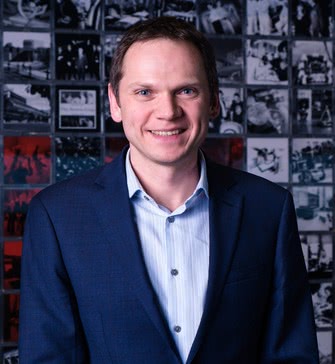
Prof. Serhiy Yarusevych
Dr. Serhiy Yarusevych is a full professor in the Department of Mechanical and Mechatronics Engineering at the University of Waterloo, Canada. He is directing the Fluid Mechanics Research Laboratory focused on multidisciplinary applications of fluid mechanics in engineering and science, including operation of lifting surfaces at low Reynolds numbers, flows over bluff bodies, free shear flows, flow induced vibrations and noise, aerosols, laminar-to-turbulent transition, and flow control. The associated research involves a combination of experimental, analytical, and numerical tools, with the main emphasis placed on experiments involving particle image velocimetry. His research in Canada was interposed by sabbatical leaves at TU Delft and the University of Bundeswehr Munich, in 2013-2014 and 2019-2020, respectively, involving collaborative research with advanced flow diagnostic tools and volumetric measurements. Dr. Yarusevych is an Alexander von Humboldt Fellow, Mercator Fellow, and Associate Fellow of AIAA. Since 2018, Dr. Yarusevych has been serving as an Editor-in-Chief of Experimental Thermal and Fluid Science, Elsevier.
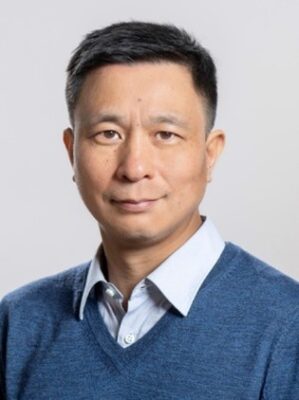
Prof. Dongshegn Wen
Prof. Dongshegn Wen is the 8th Chair of the Institute of Thermodynamics, Technical University of Munich. He received BEng in Aeronautics from Beihang University, MSc in Thermophysics from Tsinghua University and DPhil in Engineering Science from the University of Oxford. Prior to his current position, he was the Chair Professor at the University of Leeds and Beihang University, and had he worked in various academic positions at the Queen Mary University of London.
His research is focused on heat: namely, how heat is produced, transported, stored and utilized across different scales via nanomaterials / nano-surfaces with targeted applications in energy and aerospace engineering. He has taken a multiscale approach, both experimentally and numerically from nanoscale to bulk scale, to investigate fundamentals of flow, heat transfer and reactions across scales, and apply these fundamentals cross-disciplinarily into different sectors. His research has produced over 20 patents, ~350 referred journal publications, with total citation of ~23000 and current H-index = 68. He is a member of the Academia of Europaea (MAE), an elected Fellow of the Royal Society of Chemistry (FRSC) and the Energy Institute (FEI), the Editor-in-Chief of <Advance in Aerodynamics>, and Associate Editor/Subject Editor in Transfer Processes of <Applied Thermal Engineering>
Website: https://www.epc.ed.tum.de/en/td
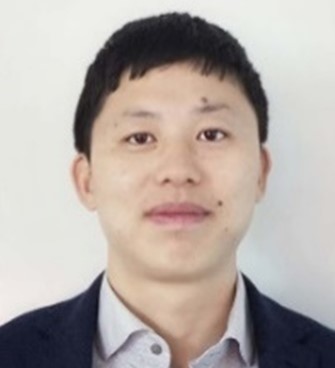
Dr. Zan Wu
Zan Wu received his B.S. and Ph.D. in Energy Engineering from Zhejiang University, Hangzhou, China in 2008 and 2013, respectively. Then, he worked as a postdoctoral fellow, a senior researcher, and in 2018 he was promoted as tenured Associate Professor, all at Department of Energy Sciences, Lund University, Sweden. He is leading projects granted by various funding agencies, especially the Swedish Research Council. The research activities mainly include multiphase flow, boiling and condensation, microfluidics and nanofluidics, electronics cooling, and renewable energy. He has co-authored 100+ peer-reviewed journal articles, 30+ peer-reviewed conference papers, and 8 invited monographs and book chapters. Since 2018, he is a member of the Scientific Council of “International Centre for Heat and Mass Transfer (ICHMT)”. He currently serves as associate editor of the Heat Transfer Engineering journal.

